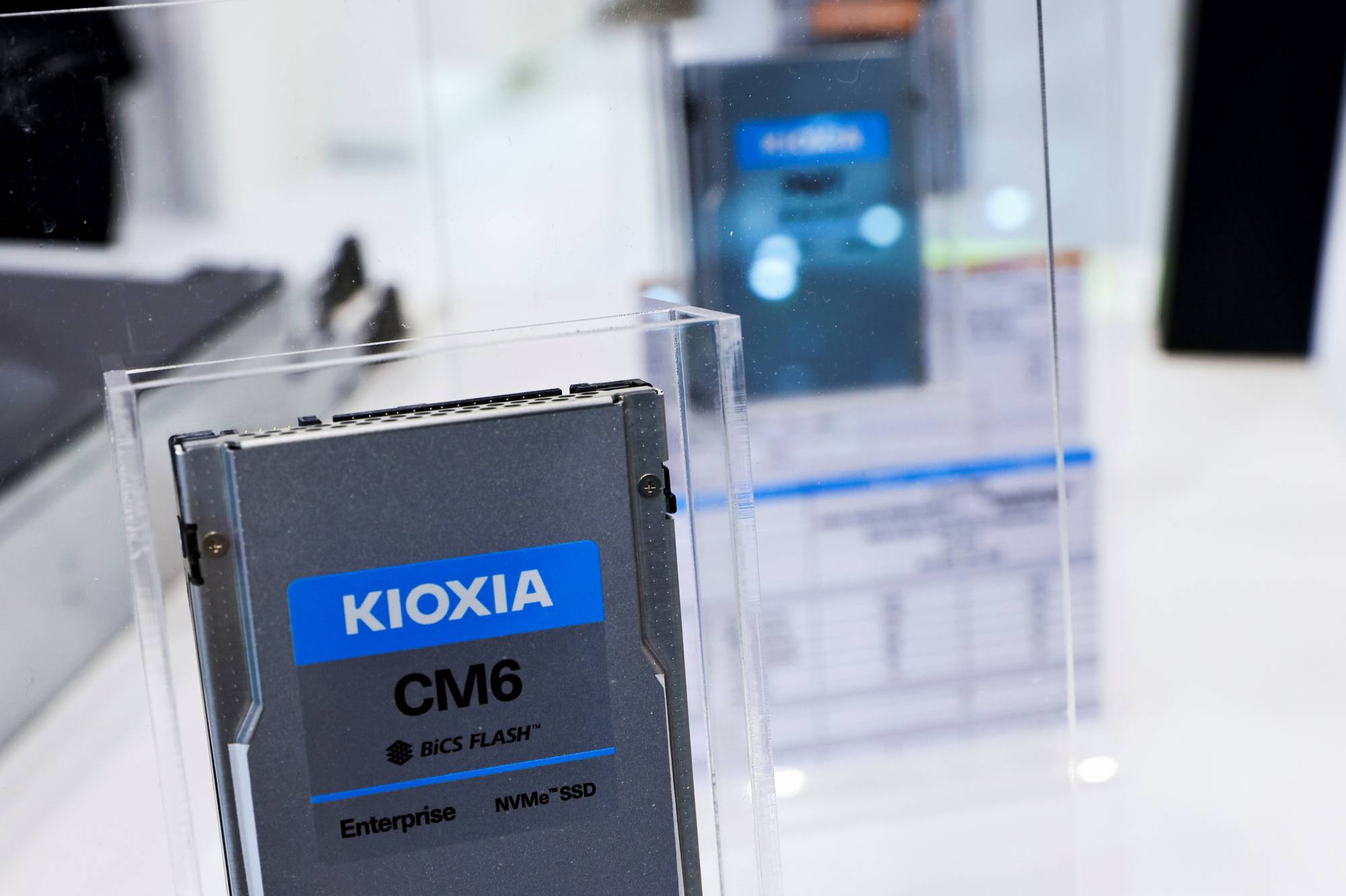
Shares of Kioxia Corporation surged 14% on their debut Wednesday, valuing the Japan-based memory chipmaker at approximately 890 billion yen ($5.8 billion). Backed by Bain Capital, the company’s initial public offering (IPO) has drawn attention as Japan’s third-largest IPO of the year, reflecting strong investor interest despite global market uncertainties.
Kioxia raised 120 billion yen by pricing its IPO at 1,455 yen per share, within the midpoint of its indicative range. Initially opening below the IPO price at 1,440 yen, shares rebounded to 1,660 yen by mid-morning trading, signaling positive sentiment among investors. Jon Withaar, an Asia-focused hedge fund manager at Pictet Asset Management, noted that the market reacted favorably to Kioxia’s valuation strategy, emphasizing the importance of reasonable pricing for future private equity exits in Japan.
A Long Road to IPO
Previously known as Toshiba Memory, Kioxia was acquired for 2 trillion yen in 2018 by a Bain-led consortium following Toshiba’s financial struggles tied to its nuclear business. Kioxia has since become a prominent player in the memory chip market. Its name combines the Japanese word kioku (memory) and the Greek word axia (value), underscoring its core mission.
The company’s path to going public was not without challenges. Global market uncertainties, including Sino-U.S. trade tensions, delayed IPO plans, while an attempt to merge with Western Digital faltered due to investor concerns. Bain Capital, which initially sought a 1.5 trillion yen valuation, scaled back expectations after market pushback, ultimately reducing its stake to 50.7% following the IPO.
A Strong Year for Japan’s IPO Market
Kioxia’s IPO aligns with a robust year for Japan’s capital markets. IPOs in 2024 have raised over $6 billion, the highest total since 2021, despite the lowest number of deals in a decade. Other high-profile listings include Tokyo Metro and Rigaku, a Carlyle-backed firm.
Analysts see Kioxia’s debut as a notable achievement, but opinions on its future remain mixed. Richard Kaye of Comgest pointed out that Kioxia’s valuation—equivalent to 4–5 times its price-to-sales ratio—may be challenging to justify in the competitive memory chip market, though it holds scarcity value in Japan’s semiconductor space.
Balancing Growth and Scrutiny
Going public provides Kioxia with additional fundraising opportunities in the capital-intensive chip industry, but also subjects the company to increased financial scrutiny. Kioxia reported a net income of 106 billion yen in the quarter ending September 30, up from 69.8 billion yen in the previous quarter, driven by an improved supply-demand balance in the chip market.
Despite the favorable IPO reception, Kioxia faces the ongoing challenge of navigating a fiercely competitive sector. The company’s ability to leverage its public listing for long-term growth will be critical to maintaining investor confidence.
Featured image courtesy of The Japan Times
Follow us for more tech news updates.
Source: https://digitalmarketreports.com/news/31118/japans-kioxia-valued-at-5-8-billion-after-ipo-surge/
